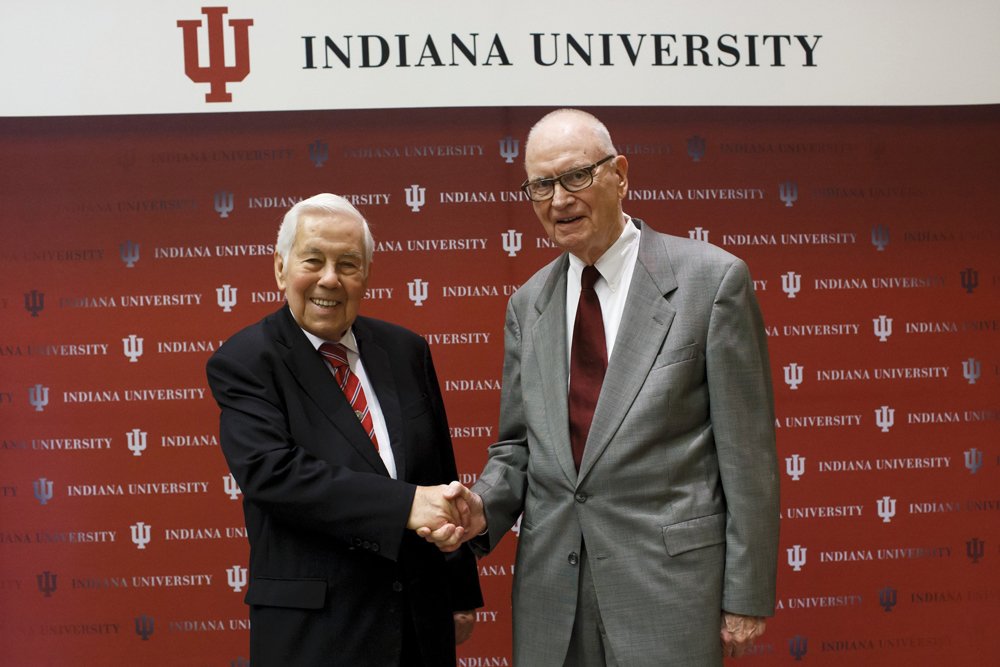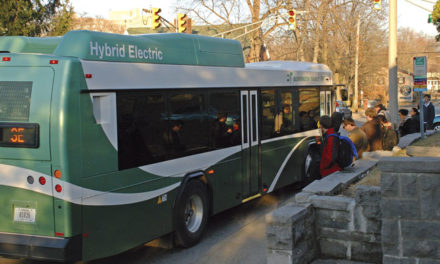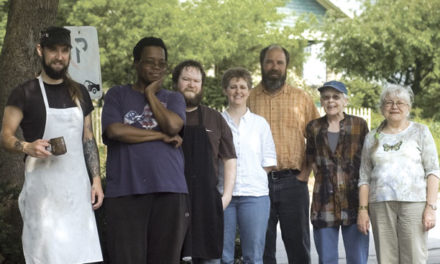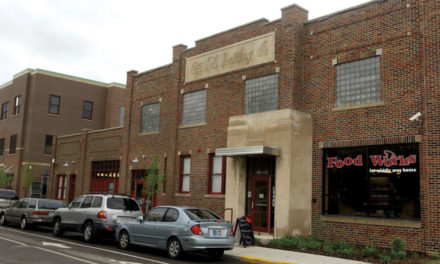
(l-r) Former Indiana Senator Richard Lugar and former Indiana Congressman Lee Hamilton shake hands at the ceremony renaming the Indiana University School of Global and International Studies in their honor. Photo by Liz Kaye, IU Communications
BY CARMEN SIERING
When Lee Hamilton received the Patriot Award from the Bipartisan Policy Center in September 2018, he shared that honor with Thomas Kean, former Republican governor of New Jersey. Kean was chairman and Hamilton vice chairman of the 9/11 Commission. Hamilton, a Democrat, served in the U.S. House from 1965 to 1999.
Then, in October, Indiana University announced it would rename the School of Global and International Studies in honor of Hamilton and Republican Richard Lugar, who represented Indiana in the U.S. Senate from 1977 to 2013.
The school, to be named the Lee H. Hamilton and Richard G. Lugar School of Global and International Studies, promotes understanding of global issues informed by a deep knowledge of history, culture, and language. Both Hamilton and Lugar joined the school in 2013 as distinguished scholars and professors of practice. Hamilton also founded the Center on Congress at IU in 1999 and is a professor of practice in the IU School of Public and Environmental Affairs.
Both of these honors come after a career promoting bipartisanship, something Hamilton says is not as common today.
“After 9/11, we came together as a country,” Hamilton says. “On the 9/11 Commission, we had overwhelming bipartisan support for the process and the recommendations. The country was united. You fast-forward to today and the political environment has radically changed. We’re divided as a country—by race, by class, by income. The political challenge is much more difficult than the environment I worked in during the early part of the century.”
Hamilton says receiving the award from the Bipartisan Policy Center, an organization based in Washington, D.C., that combines Democratic and Republican ideas to promote health, security, and opportunity, was meaningful for several reasons. Among them, he says, is the positive experience of working with Kean on the 9/11 Commission and other projects. Additionally, the fact that the award celebrates bipartisanship is significant. “Quite apart from the merits of Tom and myself, the symbol of working together in a bipartisan way is important as a way to move forward with our problems,” he says.
Hamilton deferred to others when asked about the renaming of the school. “They thought this was a good time to take a step which would move us as a country in the right direction,” he says. “And, more specifically, move the school in the direction of bipartisanship and trying to work together.”
He sees the school as a starting point for bigger things. “We need symbols of success and, more importantly, we need institutions like this school devoted to the principle of working together,” he says.
While he is delighted to add two more honors to his list of accolades, Hamilton says the thing that has given him the most career satisfaction is having had a seat at the table. “By that I mean I’ve worked with nine presidents,” he says. “Since Kennedy, I’ve worked with all of the presidents and have had an opportunity to express my views and make my views known. That’s given me a sense of satisfaction. My views aren’t always welcome or agreed with, but that’s the give and take of our political system.”
In 2015, Hamilton received the Presidential Medal of Freedom, the nation’s highest civilian honor, from President Barack Obama.







